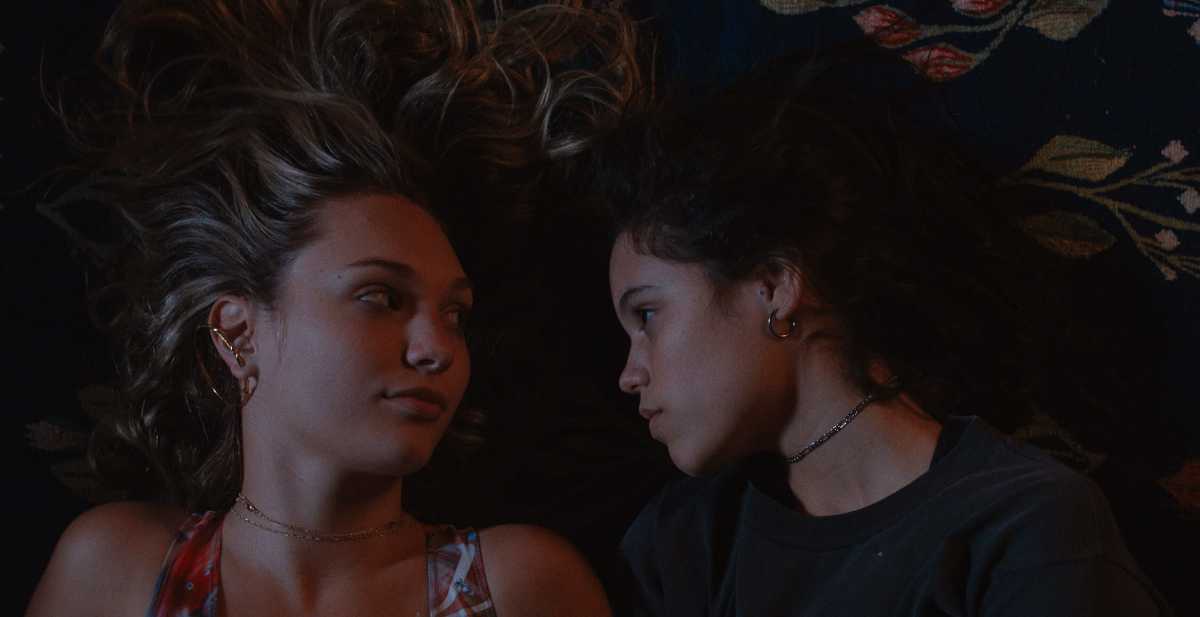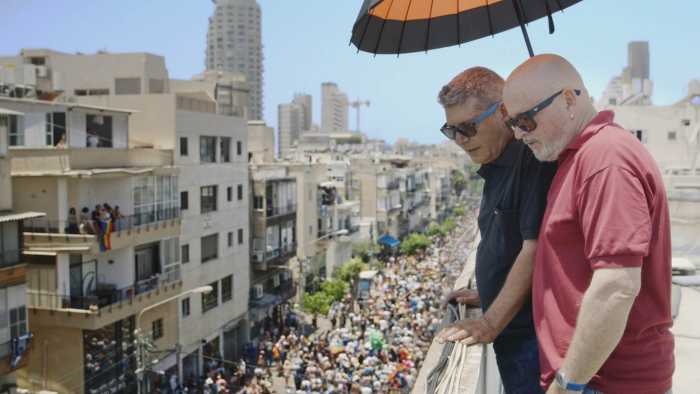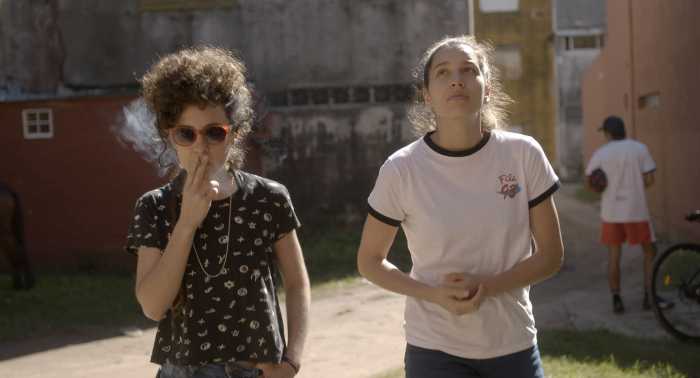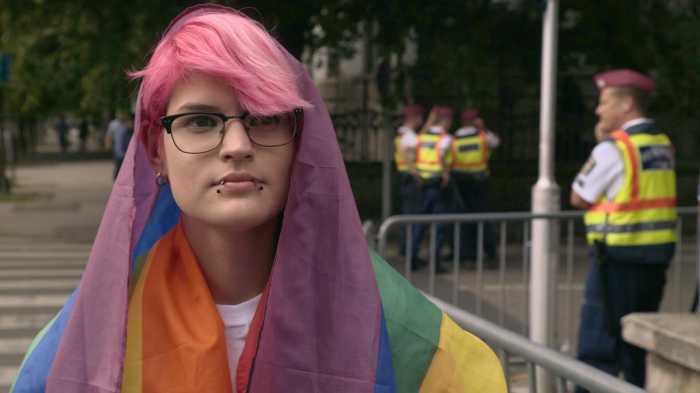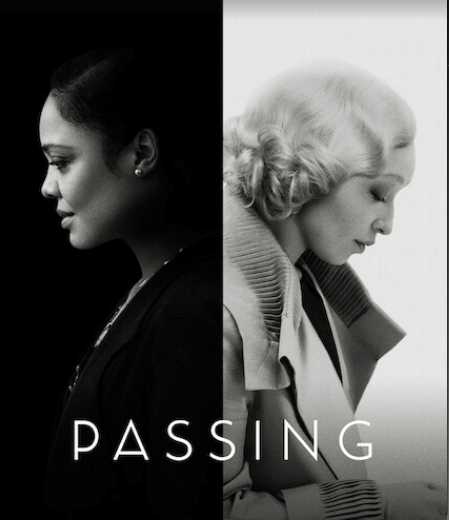Back in 1999, the Columbine shooting seemed to open the floodgates of an ugliness previously much better kept under wraps in American life. The first few films about school shootings made in its wake focused on the killers, their possible motivations, and their violent actions. More than 20 years later, a lot has changed about the way such shootings are typically portrayed in fiction and non-fiction, but as Mandy Park’s “The Fallout” suggests, the cycle of school shootings has never ended.
Vada (queer actor Jenna Ortega) rides to high school with her gay friend Nick (Will Rapp). Upon arrival, she heads to the bathroom and sees Mia (Maddie Ziegler), who has found some success as an Instagram influencer. But the situation soon becomes dizzyingly disorienting — inside a toilet stall, Vada hears a shooting take place in the school. A terrified Mia and a boy whose shirt is covered in blood, Quinton (Niles Fitch), join her as the three shelter together. (Violence is kept entirely offscreen, just suggested through harrowing sound effects.) Afterwards, she initially refuses to return to school. But the murder creates a new bond between her and Mia.
“The Fallout” chose its title wisely. Rather than violence itself, it’s about living with the aftermath. Reading current art as an expression of trauma has become a cliché of our moment, but Park’s films shows it in very specific ways. The surface calm of her style makes the characters’ anxiety even more disturbing. Vada wakes up with night terrors; when she tells this to Mia, Mia admits that she simply can’t sleep. Vada experiments with drugs, getting stoned with Mia by her pool. She goes further by taking Ecstasy during school, leading to an awkwardly comic scene of chewing a pen open till she stains her mouth blue and crawling down stairs. The film notes that adults cope with stress in the same ways; after Vada confesses her experiences with sex and drugs, her mom downs a glass of wine.
Park’s approach avoids exploitation, but maintains the rupture of her characters’ mood of suburban safety. Their homes are handsomely lit and framed, but they look nearly empty. Aside from one scene where they shout angrily outside, Vada’s father (John Ortiz) barely exists in the film, and while her mother (Julie Bowen) appears more often, Vada’s not interested in communicating with them till the very end. But “The Fallout” does not blame her parents for not knowing how to help her. “The Fallout” also brings out the lack of community in American life. By becoming an activist, Nick tries to find a collective solution. But Vada, Quinton, and Mia don’t seem to have anyone to reach out to besides each other. Instead of viewing school shootings as a political issue that she’s been dropped into, Vada looks inward.
Watching Mia in the bathroom mirror, Vada jokingly texts her sister “let’s be influencers for Halloween.” But the film avoids the easy assumption that a girl who’s gained 80,000 followers on Instagram by doing dances showing off her midriff must be an idiot or jerk. The depiction of teenagers’ queerness also feels very contemporary. Mia and Vada’s friendship starts to become homoerotic, and the two girls end up having sex and waking up in bed together. But Vada’s sexuality remains undefined — she also kisses Quinton. The film is matter-of-fact about all this; speaking to her mom, Vada reassures her that she won’t get pregnant because she had sex with a girl. It’s hard to tell whether she’s trying to shock her mother or is just being honest.
With a sensitive empathy, “The Fallout” shows teenagers living through extremely difficult circumstances. The film is open to the fact that Vada’s life is still in flux, but it doesn’t dwell on the negative. The avoidance of explicit politics might seem faintly evasive, as Nick’s growing concern with activism (in a subplot lifted from the lives of some Parkland shooting survivors) alienates him from Vada. Still, the film eventually suggests the need for a solution to the question “What’s wrong with this picture?,” where casual violence jostles with a seemingly placid middle-class American life.
THE FALLOUT | Directed by Megan Park | Warner Brothers | Now streaming on HBO Max

